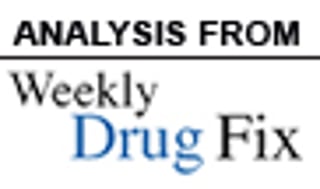Face-to-face counseling fills voids that mail order cannot
WHAT IT MEANS AND WHY IT'S IMPORTANT — The news that Walgreens outlined how face-to-face pharmacy and Take Care Clinic programs have been shown to drive better health outcomes further illustrates the fact that human interaction simply does things that mail order cannot.
(THE NEWS: Walgreens: Face-to-face consults with pharmacists, retail clinicians reduce health spend. For the full story, click here.)
As the article states, Walgreens’ research has shown that face-to-face counseling with diabetes patients reduces levels for A1C, blood pressure and LDL; it results in a rise in immunization rates; and helps educate at-risk patients on the importance of receiving a pneumococcal vaccination.
The fact is that having that human interaction in the pharmacy or a retail-based health clinic simply provides a level of quality health care that mail order cannot provide. For example, if a patient comes into a Take Care Clinic during flu season, that’s the opportune time for a nurse practitioner to review the patient’s history, and, if they meet the criteria, also offer the patient a pneumonia vaccine.
Or take a look at the hepatitis B vaccine. There’s been an increase in recommendations for diabetics to receive the hepatitis B vaccine, so diabetics who visit clinics for other services also may be able to receive that additional protection.
These obviously are just two small examples, but the message is loud and clear — the power of pharmacist- and nurse practitioner-led face-to-face programs is significant.






